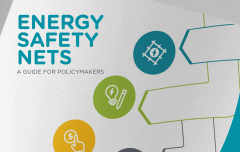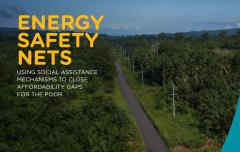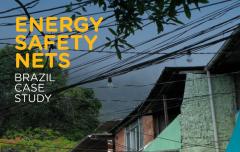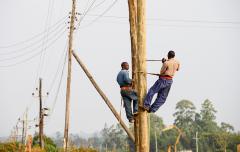Energy Safety Nets: Mexico Case Study
This Energy Safety Nets: Mexico Case Study investigates how the use of social assistance mechanisms in Mexico enable access to affordable, reliable, sustainable and modern energy for poor and vulnerable households. This study analyzes Mexico’s experience with social safety nets over two decades and highlights four programs that have delivered increased access to electricity and LPG for cooking. These include differentiated electricity tariffs, Oportunidades Energéticas, Fondo de Servicio Universal Eléctrico (FSUE), and the provision of subsidized LPG to households. The recommendations in the Mexico Case Study are informed by a detailed review of the literature, analysis of national survey datasets, and expert interviews with policymakers, academics, NGOs and communities receiving support for energy services.
The overall objective of the research is to provide guidance for policy and decision-makers, notably for government personnel, by identifying measures that have been implemented and exploring the reasons for their success and challenges encountered. Notably, the analysis highlights that Energy Safety Nets are particularly vulnerable to changes in the political landscape and suggests measures to strengthen and expand Energy Safety Nets in Mexico.
This country case study – like the other five, covering Brazil, Ghana, India, Indonesia and Kenya – seeks to answer four research questions:
- What policy measures have been used in Mexico to enable very poor and marginalized people to access and use modern energy services?
- How effective have these measures been in enabling the poorest social groups to access and use modern energy services?
- What links have there been/are there between these measures and wider/other social assistance programs?
- What changes could be made to enhance the effectiveness of existing policy measures in enabling very poor people to access modern energy services?
See also: Energy Safety Nets series




